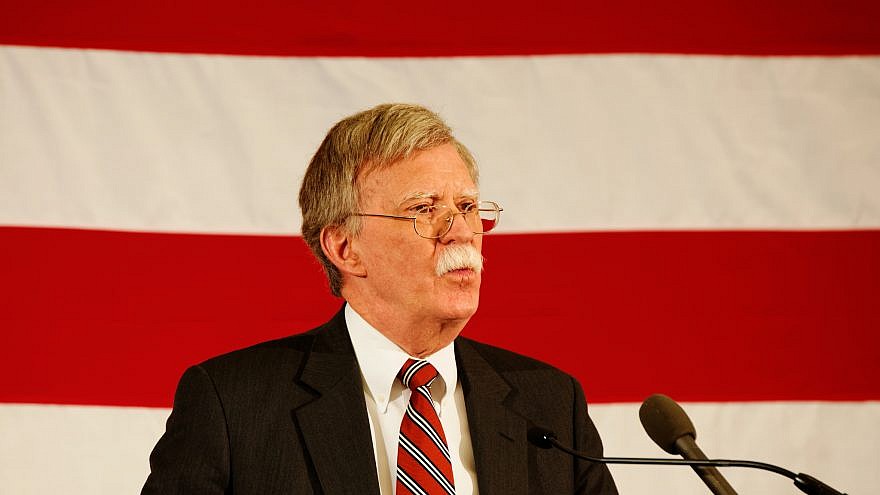U.S. National Security Advisor John Bolton said on Wednesday that U.S. sanctions against Iran could cause the regime to no longer export oil.
Bolton’s remark occurred as oil prices rose 3 percent on Wednesday to $74.78 per barrel.
“Even at the peak of the oil sanctions prior to the nuclear deal, the oil market never experienced the predicated spikes that sanction skeptics initially feared,” Iran expert Behnam Ben Taleblu told JNS.
“Bolton’s comments are designed to continue pressuring adversaries and allies alike to make the switch to non-Iranian sources of crude and condensate,” he said. “The Trump administration appears to understand that waivers or exemptions would seriously undercut the goal of a maximum pressure strategy designed to diminish revenues for Iran.”
Such a consequence could further inflame tensions between Washington and Tehran. Thousands of Iranians have protested since America renewed sanctions earlier this month after U.S. President Donald Trump withdrew from the 2015 Iran nuclear deal in May, thereby adversely affecting the Iranian economy.
To be fair, Iranians had already been rallying against their own government before the U.S. withdrawal for problems related to the economy and ongoing drought.
Bolton, visiting Israel, made it clear that the reimposition of sanctions does not mean that the United States is seeking regime change in Iran, but rather “massive change in the regime’s behavior.”
Without elaborating, he added that “we are going to do other things to put pressure on Iran as well beyond economic sanctions.”
Bolton also said that the Europeans face a choice between doing business with Iran or America. European oil companies have begun to reduce Iranian purchases.
“We expect that Europeans will see, as businesses all over Europe are seeing, that the choice between doing business with Iran or doing business with the United States is very clear to them,” said the national security advisor.
“If you will it, it is no dream,” said Richard Goldberg of the Foundation for Defense of Democracies, echoing Theodor Herzl, the founder of the Zionist movement.
“If Saudi Arabia maximized its swing production alongside a large increase in U.S. exports, it’s possible to get much closer to zero than analysts ever expected,” continued Goldberg, who, while working in Congress, was the lead Republican negotiator for a few rounds of sanctions targeting the Iranian economy. “The administration still needs to be proactive in reassuring the market with public statements about increased production offsetting the loss.”
He added that “we’ve seen that happen recently with Saudi Arabia’s public discussion of a massive production increase and just this week with the U.S. announcing a sale of 11 million barrels from the U.S. strategic petroleum reserve timed around the sanctions implementation date.”
Taleblu concurred with Goldberg, saying, “there has already been a decline in purchases of Iranian crude this summer. That trend must be expedited.”


























